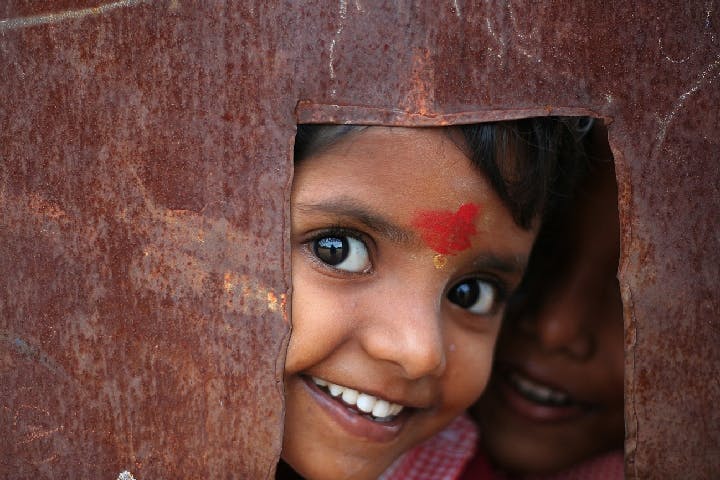In Indian towns where women are elected, life improves for girls
– Miriam Kelberg
India’s governmental gender quotas have had a real, profound, and positive impact on girls’ lives.
It’s no secret that throughout the world, women have been historically underrepresented in politics. Even today, there are 37 countries where women hold less than 10 percent of the seats in national parliament. To remedy this, many countries have created gender quotas — a kind of affirmative action policy intended to raise the number of women in politics, often by reserving a certain percentage of seats in the national legislature for female politicians. In India, this is exactly what is done at local level of government.
Having women in government has a profound influence on Indian society. When female voices are excluded from politics, so are the issues that affect women. Local councils with high female representation tend to reflect that in the policies they enact, lending greater support to issues like water access and welfare programs, both of which predominantly effect women, as they manage the home. Then, there are the less-noticeable alterations to Indian society — fascinating changes that happen because women in government become symbols of what women can be and achieve.
One of these changes is a decrease in sex selection. India has long had a high rate of female feticide and higher mortality rates for girls. The preference for sons over daughters is deeply engrained in Indian life, and the most common justification comes from a purely economic standpoint: sons are expected to provide for their families, especially as they mature. Sons bring in wealth and property, play important roles in Hinduism, and progress the family lineage. Daughters, meanwhile, are raised for marriage, and sometimes require costly dowries. After the birth of a male, many Indian parents choose to stop childbearing. In the 2001 Indian census, men outnumbered women by seven percentage points.
Work by Priti Kalsi, a researcher with the University of Colorado at Boulder, found that increasing women’s political leadership may limit this preferential selection because leadership elevates the status and desirability of girls. Kalsi’s research found that after women’s political representation was increased through quotas, there was a substantial decrease in child mortality among girls and a significant increase in the likelihood that one of the first three children born to a mother will be a girl — suggesting a decrease in sex-selective abortions and female feticide.
India demonstrates an age-old truth: role models matter (and not just to children)
The obvious question this research raises is how it is evident that it was women in government, and not some other factor, that led to less sex selection. The answer to this lies in how the quotas were set up. In each election, one-third of village councils are randomly selected to be reserved for a female chief councilor, called a pradhan; since it’s randomized, there shouldn’t be differences between the councils with quotas and without quotas. It’s set up as a sort of natural experiment, making it easier to specifically identify quotas as the cause of social change.
Using this natural experiment again, another study found that girls are more likely to do well in school in districts that had had a female pradhan, as opposed to districts that had yet to elect a woman to the position. As featured in Science, the research by Lori Beaman et al., surveyed more than 8,000 adolescents and parents in almost 500 villages across India. Where there are women political leaders, female students scored higher in school exams. Meanwhile, boys’ test scores stayed roughly the same regardless of the pradhan’s gender, which suggests that the benefits which girls experience are not related to improvements in the school system itself.
Despite doing better in school, many Indian girls retain less ambitious dreams for themselves, which are shaped by their communities. Historically, wide gaps have existed between what girls and boys aspire to, but the Science study illustrated that this, too, is changing, as female politicians in India prove that women can choose to be something other than caretakers and wives. In villages that had a female leader for two election cycles or more, the gender gap in parental aspirations for their male and female children was reduced by more than 25 percent, and by 32 percent among adolescents themselves.
With the instillation of India’s gender quotas, there’s been a rise in documented crimes against women. This is not due to an increase in actual crime, but in the rise in crime reporting. Research by Anandi Mani, et al., in a working paper for the Centre for Competitive Advantage in the Global Economy found that after quotas were enacted in India, documented crimes against women rose by 44 percent, sexual assault per capita rose by 23 percent, and kidnapping of women increased by 13 percent. There were no changes in levels of reporting for other crimes, such as robberies, arson, or counterfeiting, suggesting that the change was caused by a rise in the status of women in society, and not a general increase in crime reporting.
When someone cannot see people of their own identity with influence in society, it’s unrealistic to imagine that they can aspire to positions beyond their current situation. These examples from India demonstrate an age-old truth: role models matter.
* * *
Further reading:
Lori Beaman, Esther Duflo, Rohini Pande, and Petia Topalova, “Female leadership raises aspirations and educational attainment for girls: A policy experiment in India,” Science 335, no. 6068, 2012.
Lakshmi Iyer, Anandi Mani, Prachi Mishra, and Petia Topalova, “The power of political voice: Women’s political representation and crime in India,” Harvard Business School BGIE Unit Working Paper, 2011.
Priti Kalsi, “Seeing is Believing: Can Increasing the Number of Female Leaders Reduce Sex Selection in Rural India?” Discussion Papers in Economics, University of Colorado, working paper No. 13–14, 2013.
Photo courtesy of Flickr/Joel Dousset
